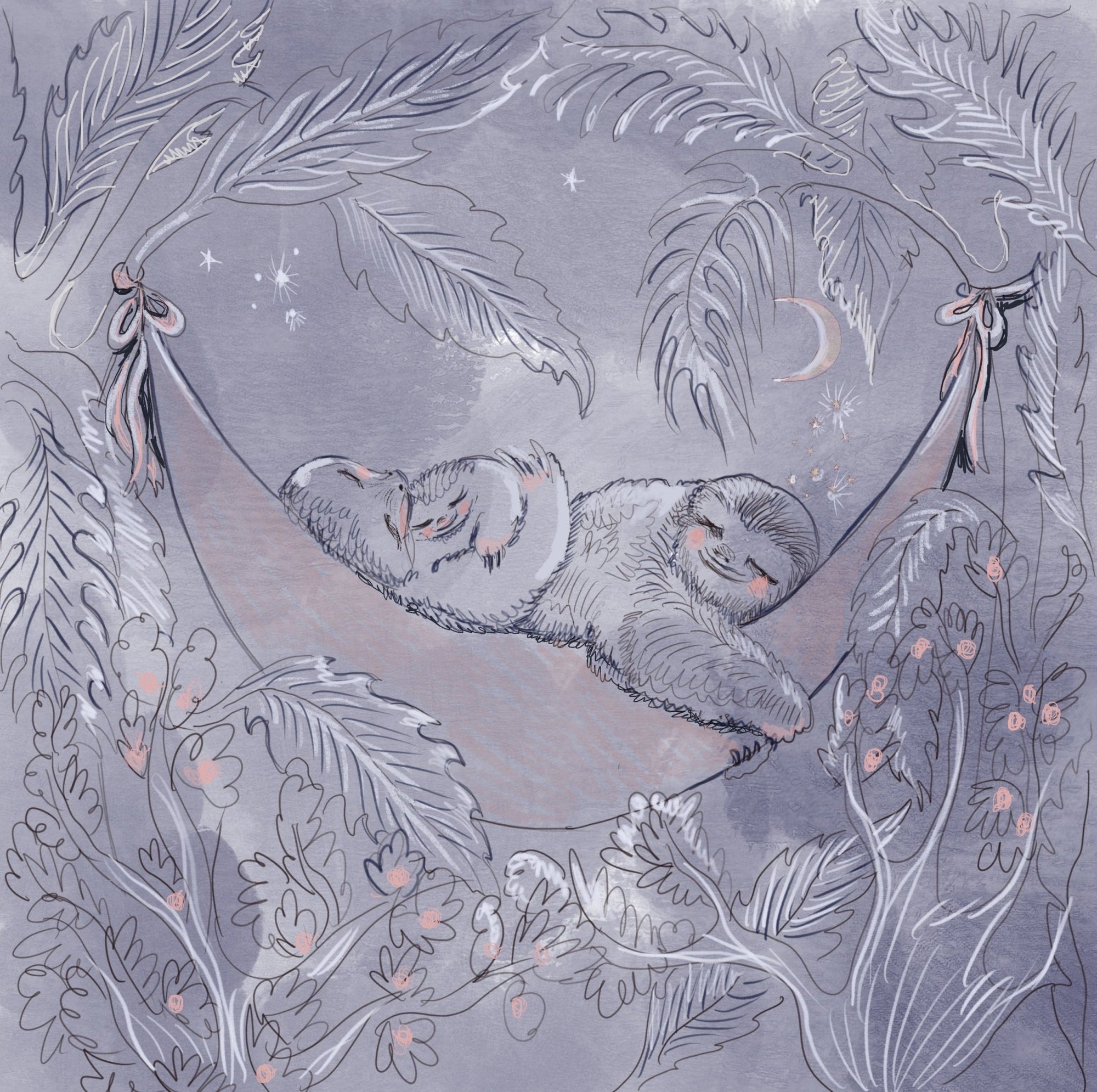If you look closely at our designs you’ll spot all kinds of creatures getting some shut eye. High up in the arbors of the Enchanted Forest you’ll find a family of mice, yawning and settling down for sleep in their hammock while down below in the burrows a fox and her cubs slumber in their cosy den.

Little did we know when we were sketching out our first designs back in 2014 that a 2019 study would show that mice, like humans, sleep better when rocked! The researchers used hammocks to demonstrate that mice slept 12% longer and fell asleep 51% faster when rocked. Some of these mice in our hammock look like they need a bit more rocking!

One of my favourite characters of all our collections is Robbie the Whale, in the daytime side of our Legends of the Sea design you’ll find him exploring the open water but he is a little more difficult to spot at night. He has made himself into a tiny miniature whale asleep in a mussell shell to keep himself safe from harm.

In the real world, whales (and also dolphins) sleep by switching off just one part of their brain at a time. This is called ‘unihemispheric sleep’ and means the part of their brain that is not asleep can still remind them to breathe. Unlike humans whales are voluntary breathers so they have to consciously take each breath.
Elsewhere in the animal kingdom, the animals that are getting the most sleep are Koalas who are snoozing for up to 22 hours - they need so much sleep due to their low energy diet and to allow their bodies to process the toxins in the eucalyptus leaves they eat. It won’t be a surprise that sloths are getting a lot of sleep but more surprising perhaps are pythons, giant armadillos and brown bats.
Whales along with giraffes are the animals getting the least sleep, spending as little as 7 and 8% of their day asleep. It makes me feel tired just thinking about how little sleep that is!
Back to humans and our offspring need different amounts of sleep as they grow. Its important for all humans to get enough sleep but particularly babies and children as they are growing. Babies will spend between 12 to 16 hours of their day asleep but at 6-12 years old that reduces to 9 to 12 hours sleep a night. Sleep hygiene (which is what we do in the lead-up and routines we have around bedtime) can play a huge role in the quality of sleep both in children and adults.
Forivor was founded with the belief that the lead-up to bedtime is a uniquely special time where children and their parents can cuddle up and be physically close. The sharing of stories whether its the kind we make up from our imaginations, real life stories from the day or read aloud from our favourite books are the perfect way to bond and calm our minds and bodies for good sleep. We want our products to encourage storytelling of any kinds in these moments and create a beautiful backdrop to these really precious family moments.



